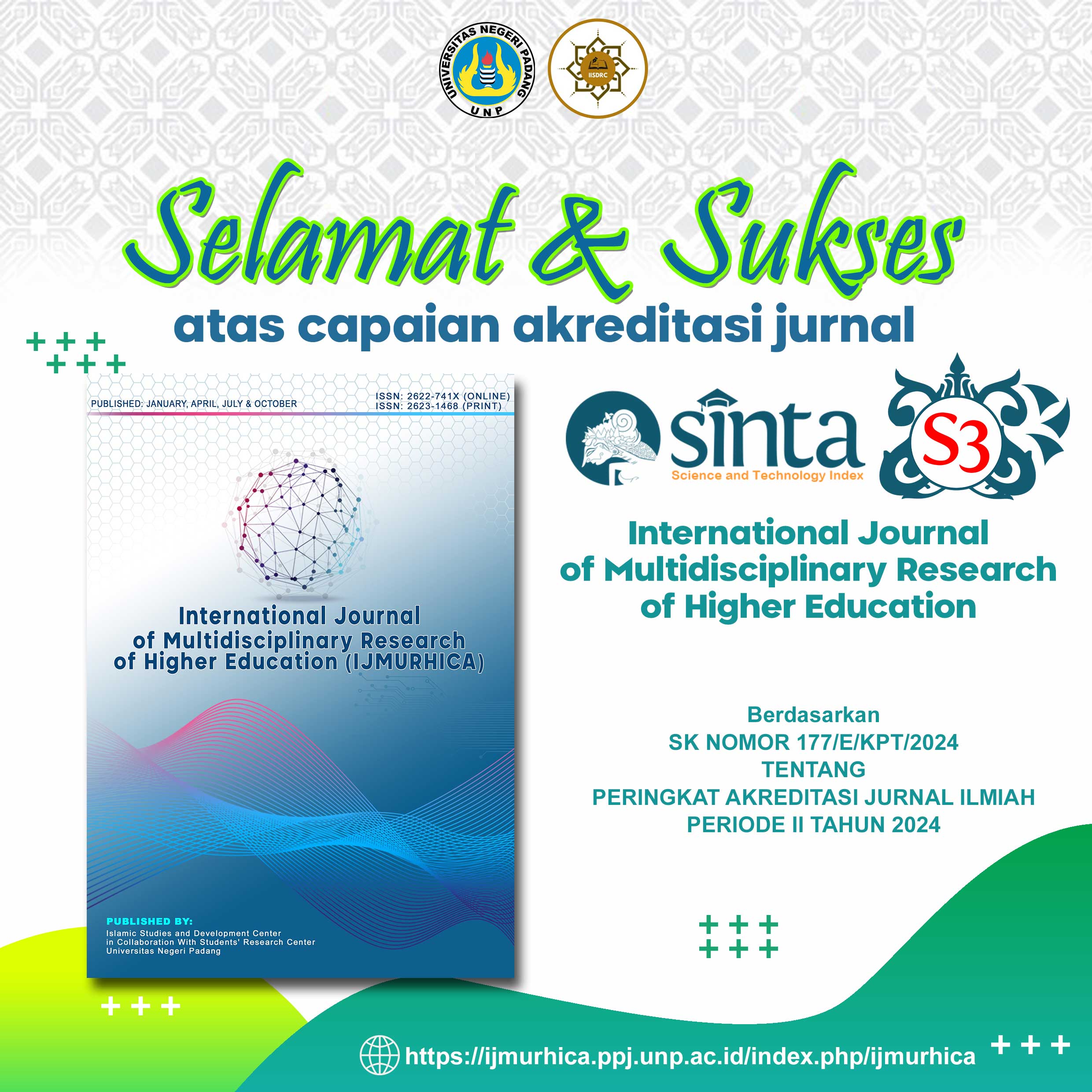The Concept of Transforming the Leadership of Islamic Universities in Indonesia Towards a World Class University
DOI:
https://doi.org/10.24036/ijmurhica.v7i2.211Keywords:
Leadership of Islamic, World Class University, transforming the leadershipAbstract
This study aims to investigate the transformation of leadership in Islamic universities before and after the implementation of the Regulation of the Minister of Religion Number 68 of 2015. This study uses a qualitative approach with a case study design conducted at the State Islamic University of North Sumatra Medan. Data were collected through participant observation, semi-structured interviews with fourteen informants consisting of four students and ten students selected by purposive sampling technique. Data analysis techniques follow the Miles and Huberman method, including data collection, data reduction, data presentation, and conclusion drawn. Triangulation of sources and techniques is used to ensure the validity of the data. This study aims to describe and analyze the transformation of leadership in Islamic universities before and after the implementation of the Regulation of the Minister of Religion Number 68 of 2015. The results of the study show that there are significant changes in the criteria and leadership selection process after the implementation of the new regulation, which emphasizes the importance of the position of Professor and involves the role of the Selection Commission. This change reduces the participation of the academic community and increases the issue of personal closeness in the appointment of officials, affecting the dynamics of leadership and institutional performance. This study provides insight into the impact of regulations on leadership management in Indonesian Religious Higher Education. In the context of moving towards Word Class University, an inclusive and transparent transformational leadership strategy is key to ensuring effective adaptation to new regulations and improving the overall performance of the institution.






